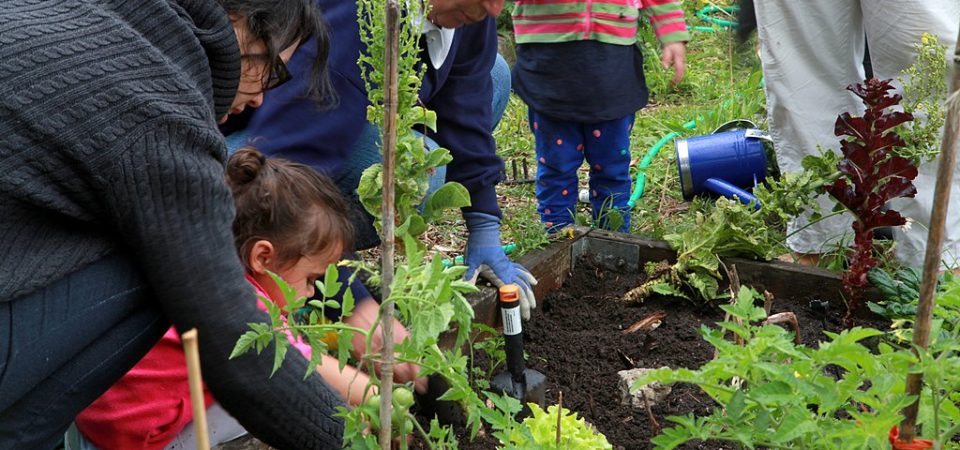The Human Predicament and A Human’s Predicament
“…ask not what your country can do for you – ask what you can do for your country.” – President John Fitzgerald Kennedy
This is easier said than done, especially when we change the words “your country” to “humanity”. As we, “the MAHB”, know, the Human Predicament and its elements (i.e., overpopulation, peak oil, climate change, inflated economy, etc.) are complicated. But to the average human, the Human Predicament is beyond comprehension. Many humans do not have the same advanced training and knowledge that the MAHB possesses. Moreover, while some humans do genuinely care about the Human Predicament, most of them are unable to contribute substantial change.
Take Canada, for example. In the Fall of 2020, about 1 in 10 Canadians aged 12 and older reported experiences of food insecurity [1]. Since March 2020, 19% of Canadians skipped a meal or reduced meal sizes to save money [2]. In March 2022, there were almost 1.5 million visits to food banks, a 35% increase from March 2019 [3]. Some of my fellow Canadians have asked me: “How can I save the environment when I can’t put food on my table?” “How can I worry about the next 50 years when I’m potentially getting evicted tomorrow?” “Why should I care about the Human Predicament when I can’t even solve my own predicament?”
National/International Level Changes Take Too Long
Most initiatives’ strategies primarily focus on the national/international levels. While it is important, there is little to no opportunity for average citizens to directly contribute to change. Moreover, change takes too long at these levels.
For example (an oversimplified one), suppose that in Canada, we wanted to introduce additional responsible fishing practices. To legally enact these changes, this would likely go to the federal Parliament as a bill since the Canadian federal government has constitutional jurisdiction to regulate fisheries [4]. The bill would be read and debated several times in the House of Commons and the House of the Senate. Also, committees scrutinize the bill’s effects on Canadian waters, on the Canadian fishing industry, on Indigenous peoples’ fishing rights [5], and on Canada’s marine biodiversity. Finally, the bill must receive Royal Assent and a date of coming into force [6]. The entire process can take years, assuming that the bill is not defeated by political stratification. By the time the bill comes into force, it may be too late. Even then, there is potential future constitutional litigation which could lead to the legislation being struck down. I can imagine a similar situation happening with the U.S. Congress.
Also, the Canadian federal government (and any national government) is equipped to solve national-scale problems, not local problems. Tangier, Nova Scotia, would be affected differently from Toronto, Ontario. What may be beneficial for one community may be completely irrelevant or even detrimental to another.
Trickle-Up Change
Before one can fish the larger fish in the larger oceans (and tackle the larger problems), one must first fish the smaller fish in the smaller ponds (and tackle the smaller problems). I said this in a 1-on-1 conversation with Paul Martin, Canada’s 21st Prime Minister [7]. Mr. Martin stressed that the best way for a country to succeed is when the people of the country succeed [8]. He also emphasized the urgency of solving the Human Predicament, and my response was that younger generations (such as myself) are trying to solve these problems [9]. But if we do not know how to begin our advocacy, we cannot act effectively, and people cannot succeed. Thus, local community change is extremely important.
Instead of solely focusing on “changing the world”, we should first change our local communities. Through trickle-up solutions, we can then change the world.
I propose two strategies. Firstly, we, the MAHB, are international, and we can use our network to affect local cultures by explaining how a specific problem affects our local communities’ success and sustainability. Using the fishing example again, a MAHB member from Tangier, Nova Scotia can proficiently explain to other Tangier residents about overfishing’s impact on their community’s food supply, job security, and local biodiversity.
Each community is different. Each community has its own culture, ecosystem, and economy. Therefore, to advocate effectively, one must have deep knowledge of such culture, ecosystem, and economy. In my view, this deep knowledge can help us tailor specific solutions for each community’s distinctive biological and human ecosystem.
In Canadian family law, when addressing issues affecting children, family lawyers, and separating/divorcing parents must follow the Convention on the Rights of the Child and create strategies that are in the “best interests of the children” [10]. In my opinion, we can borrow this legal concept from our local community advocacy and emphasize this concept in our foresight strategies and remedies. Every community shares one objective: the creation of a better future for their kids. Therefore, we can effectively explain the Human Predicament by explaining its effects on the best interests of each community’s children. Residents would quickly relate to these issues and would know what to do in order to meet their children’s interests.
Secondly, we can introduce ideas (aka lobby) at the municipal level. As our colleagues, Lee Ross et al. stated, “the greatest prospect for rapid progress in the near future may lie with midlevel organizations and institutions, including city and state agencies…”[11]. In my view, this is more than just a “may”; it is a “very likely”. There are likely fewer political and legal variables at this level, and a municipal council’s knowledge of their municipality is better than any provincial/state or federal government’s knowledge. At least in Canada, municipalities make their by-laws publicly available, which include parks, land zoning, procurement, and shrubbery.
Depending on the municipality, we can study the by-laws, connect the relevant by-laws to our targeted initiatives, and lobby accordingly [12]. This would still take some time and require a municipal lawyer’s expertise to navigate the procedure. But again, there are likely fewer political and legal variables and a solution can be reached sooner than at the provincial/state level or national level.
Obviously, these are not one-size-fits-all solutions. Some countries restrict certain areas to national jurisdiction. As aforementioned, fisheries in Canada are under federal constitutional jurisdiction, so introducing “municipal fishery legal reform” is pointless. Especially in Canada, provinces (not the federal government) delegate power to municipalities (i.e., Ontario’s Municipal Act, 2001 [13], especially Part II), and thus Councils can only act within these powers. Additionally, affecting change in one municipality is tiny compared to affecting change in one country. However, thousands of municipalities enacting appropriate practical changes will have a cumulative positive effect that is equal to national change.
This is “trickle-up change”: individuals change their countries by changing their local communities.
Foresight is 20/20
As the MAHB, we have a strong network with great advocacy potential. If we advocate effectively, humans would not have to ask what they can do for their country; they would already know what to do. With such knowledge, humans can make foresight 20/20.
DISCLAIMER: The above is NOT legal advice. It is only intended for educational and general information purposes. Any legal advice should be sought from lawyers practicing in the respective areas and jurisdictions.
References:
[1] Government of Canada, Statistics Canada, 2022, “Household Food Insecurity in Canada Early in the COVID-19 Pandemic,” February 16, 2022, https://www150.statcan.gc.ca/n1/pub/82-003-x/2022002/article/00002-eng.htm.
[2] “From a Storm to a Hurricane,” Food Banks Canada (2022), https://hungercount.foodbankscanada.ca/assets/docs/FoodBanks_HungerCount_EN_2022.pdf.
[3] Ibid.
[4] Government of Canada, Constitution Act, 1867 at s. 91(12).
[5] Government of Canada, Constitution Act, 1982 at s. 35.
[6] “Legislative Process,” Parliament of Canada, https://www.ourcommons.ca/procedure/our-procedure/LegislativeProcess/c_g_legislativeprocess-e.html.
[7] Amos Vang, “The Stage of History: The Rt Hon. Paul Martin on His Journey from Law to Business to Prime Minister,” October 2022, YouTube video, 41:47, https://www.youtube.com/watch?v=sVJKe8FFeP0.
[8] Ibid, 25:57.
[9] Ibid, 46:15.
[10] Canadian Bar Association, “Best Interests of the Child,” https://www.cba.org/Publications-Resources/Practice-Tools/Child-Rights-Toolkit/theChild/Best-Interests-of-the-Child.
[11] Lee Ross et al., “The Climate Change Challenge and Barriers to the Exercise of Foresight Intelligence,” Bioscience, no. 66 (2016): 366, https://academic.oup.com/bioscience/article/66/5/363/2468623.
[12] Canadian Bar Association, “Factors to Consider when Creating a Municipal Lobbyist Registry,” https://www.cba.org/Publications-Resources/Practice-Tools/Municipal-Lobbyist-Registry/FACTORS-TO-CONSIDER-WHEN-CREATING-A-MUNICIPAL-LOBB.
[13] Municipal Act, 2001, S.O. 2001 c. 25.
 Amos Vang (王思源) is a lawyer practicing in the Province of Ontario, Canada. He received his Juris Doctor from the University of Ottawa’s Faculty of Law, and he is called to the Bar of Ontario. Amos is passionate about helping communities succeed in different ways, as evidenced by his diverse training in legal areas such as family law, civil litigation, constitutional law, employment law, business law, administrative law, real estate law, estate planning, commercial law, and municipal law. Amos is also a podcaster for the award-winning Canadian Law Blog podcast, The Law School Show, where he interviewed guests such as Canada’s 21st Prime Minister Paul Martin, Canada’s 28th Governor General David Johnston, current Canadian Supreme Court Justice Andromache Karakatsanis, and former Canadian Supreme Court Justice Marshall Rothstein. Amos is also a member of the Canadian Chopin Society. In his spare time, Amos is a sportscaster, emcee, fitness enthusiast, and classical pianist.
Amos Vang (王思源) is a lawyer practicing in the Province of Ontario, Canada. He received his Juris Doctor from the University of Ottawa’s Faculty of Law, and he is called to the Bar of Ontario. Amos is passionate about helping communities succeed in different ways, as evidenced by his diverse training in legal areas such as family law, civil litigation, constitutional law, employment law, business law, administrative law, real estate law, estate planning, commercial law, and municipal law. Amos is also a podcaster for the award-winning Canadian Law Blog podcast, The Law School Show, where he interviewed guests such as Canada’s 21st Prime Minister Paul Martin, Canada’s 28th Governor General David Johnston, current Canadian Supreme Court Justice Andromache Karakatsanis, and former Canadian Supreme Court Justice Marshall Rothstein. Amos is also a member of the Canadian Chopin Society. In his spare time, Amos is a sportscaster, emcee, fitness enthusiast, and classical pianist.
The MAHB Blog is a venture of the Millennium Alliance for Humanity and the Biosphere. Questions should be directed to joan@mahbonline.org
The views and opinions expressed through the MAHB Website are those of the contributing authors and do not necessarily reflect an official position of the MAHB. The MAHB aims to share a range of perspectives and welcomes the discussions that they prompt.
